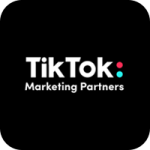It’s February 21, and with it comes an important milestone in the history of search engine marketing. It was on this day in 1997 that the world’s first search engine marketing agency, Search Marketing Group, was founded. Let’s take a look back at the history of search engine marketing, and how it has grown since then.
What is Search Engine Marketing?
Search engine marketing (SEM) is a form of internet marketing that uses various techniques to increase visibility on search engine results pages (SERPs). This includes strategies such as pay-per-click (PPC) advertising, as well as optimization of webpages and content in order to improve organic ranking. The aim of SEM is to promote a website or product within the top results of a SERP, and drive more traffic and better leads.
The Founding of the Search Marketing Group
Search Marketing Group (SMG) was founded by two industry veterans, Matthew Clements and Stephen Woods, on February 21, 1997. The two founders had experience in the early days of online marketing, and wanted to create a company that would provide effective search marketing solutions to businesses of all sizes.
Since its founding, Search Marketing Group has grown to become one of the leading search engine marketing companies in the world. The agency has had notable success with clients such as IBM, Citi, and Microsoft, and is renowned for its innovative strategies and cutting-edge technologies.
The Evolution of Search Engine Marketing
Over the years, search engine marketing has evolved drastically, and continues to grow and change as new technologies become available. Here are some of the key developments in SEM over the last two decades:
• Introduction of Paid Ads: In the late 90s and early 2000s, Google and other search engines introduced pay-per-click (PPC) advertising, which allowed businesses to bid on certain keywords in order to increase visibility on SERPs. This opened up a new world of marketing opportunities, and allowed businesses to target potential customers at a much higher rate.
• SEO Becomes a Necessity: SEO has always been an important part of search engine marketing, but in the early 2000s, it became a necessity for businesses looking to rank highly on SERPs. As organic ranking algorithms became more complex, and competition for top spots increased, businesses had to invest in SEO and optimize their websites in order to stay ahead of their competitors.
• Mobile-First Indexing: In 2016, Google shifted to a mobile-first indexing system, meaning that mobile versions of websites are now crawled and indexed first, and are used as the baseline for rankings on SERPs. This led to a boom in mobile-focused marketing strategies, as companies had to adjust their strategies in order to maintain visibility on mobile devices.
• AI-Powered Ads: In recent years, search engines have begun using artificial intelligence (AI) to improve their algorithms and targeting capabilities. AI-powered ads allow companies to target their ads more accurately and efficiently, and are becoming an increasingly popular tool for search engine marketers.
The Future of Search Engine Marketing
As technology continues to advance, search engine marketing is sure to be affected. We can expect to see more emphasis on voice search, as well as more sophisticated targeting strategies powered by AI and machine learning. Additionally, we can expect to see more innovative ad formats and tools, as search engines continue to strive for higher engagement and conversion rates.
Conclusion
It has been more than two decades since the founding of Search Marketing Group, and in that time search engine marketing has evolved drastically. From the introduction of paid search ads, to the rise of SEO and mobile optimization, to the use of AI-powered targeting strategies, SEM has come a long way. As technology continues to advance, we can expect to see more innovative strategies and tools in search engine marketing in the years to come.







